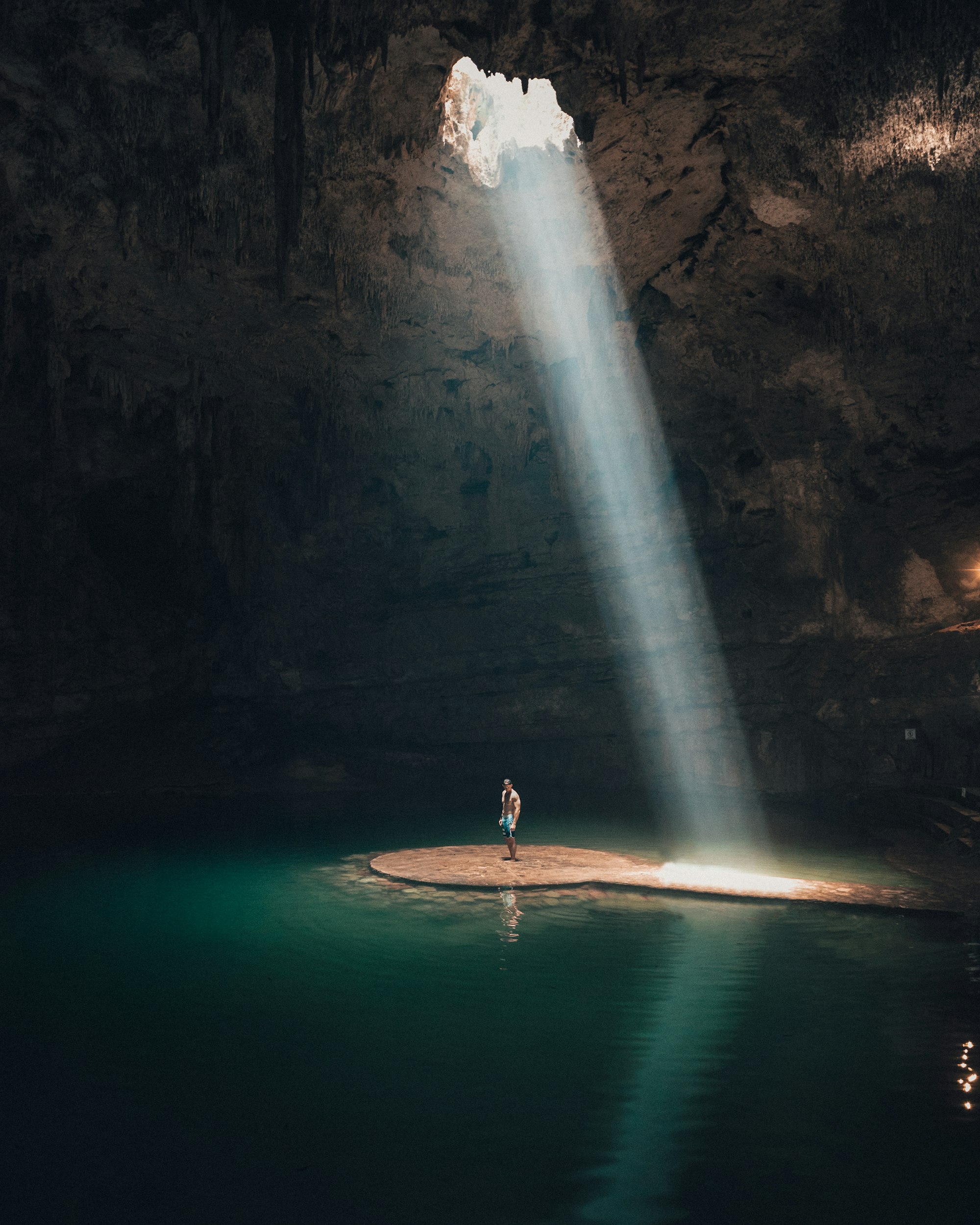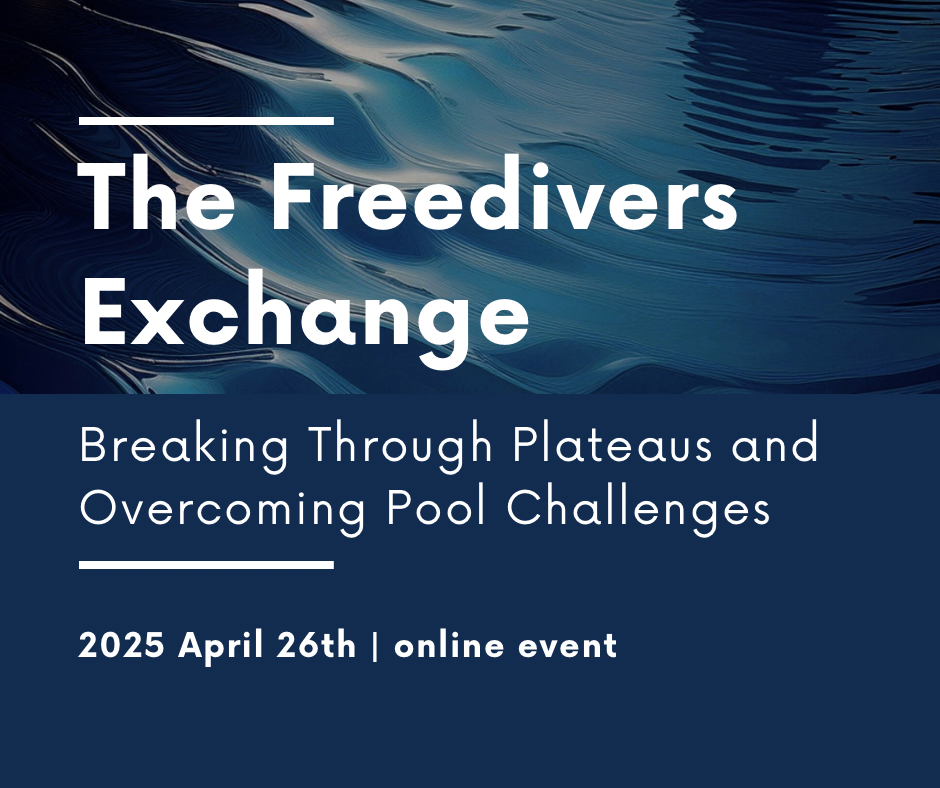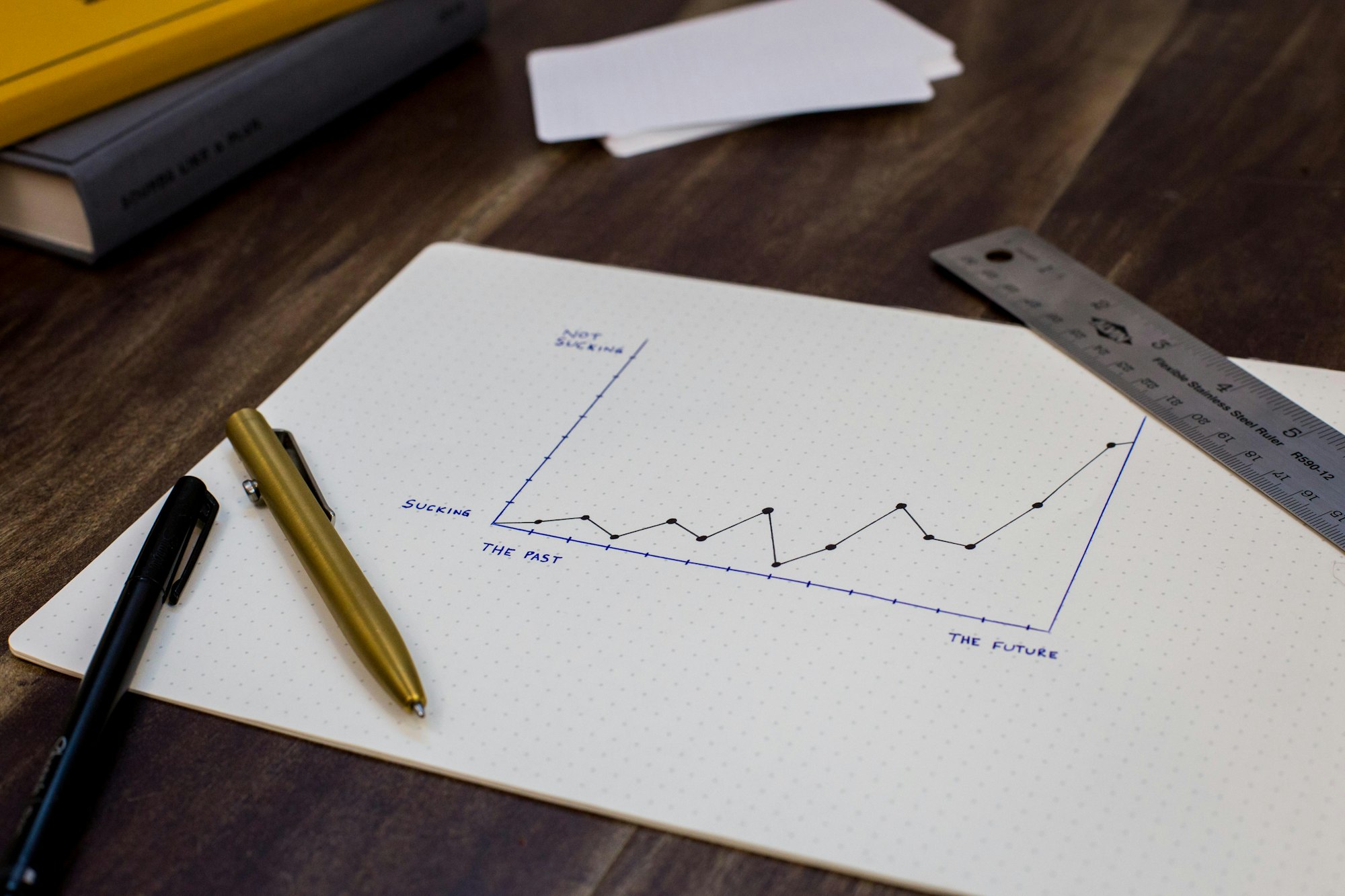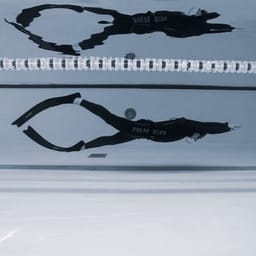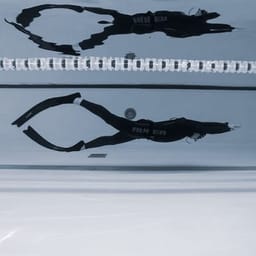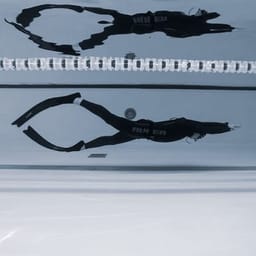Deep Dive Into the Freedivers Exchange with Michaela Werner Freediver
Meet two passionate freedivers, separated by 15,000 km but united by their love for the sport. One is a self-taught enthusiast, the other a seasoned coach with a world record. Together, they explore the transformative power of freediving, sharing insights on mindset and training.

Meet two passionate freedivers separated by over 15,000 kilometers yet united by their love for the sport. One is a self-taught, self-motivated freediver with a few years of experience, while the other is a freediving coach with decades of experience and a world record to her name.
What valuable lessons have they learned from their journeys of self-discovery and mindset development? How do their training methods complement each other, and where do they differ?
Join us as we explore the transformative power of freediving and discover how it has shaped their lives in extraordinary ways. Meet Michaela Werner - Freediver, and AnonymousFreediver.com.
What is your freediving experience, what is your favourite discipline, how often do you train?
Michaela Werner - Freediver: I’ve spent my entire life in and around the water - more than four decades now, as a competitive swimmer, pool & ocean lifeguard and even scuba diver. I discovered freediving 16 years ago in Australia.
As a mum of three young kids, my training has been mostly pool-based. But recently, I had the chance to spend a full month depth training in Egypt, and I was amazed at how smooth and effortless the deep dives felt - especially in terms of technique and CO2 tolerance.
Training is a huge part of my life, and I never stop because I enjoy it so much! My focus shifts depending on my goals - whether it’s a personal challenge, a competition, or simply maintaining and improving my skills. After years of dedicated training, I’ve realized how much knowledge and experience I’ve accumulated, and now I’m excited to take on more of a coaching and mentoring role, helping others progress in their freediving journey.
My favorite disciplines are DNF and CNF - the two most physically challenging. I love the power, beauty, and simplicity of the stroke. No matter what life throws at me, I train almost every day, whether it’s yoga, static breath holds, walking apnea, rock climbing, pool sessions, or outdoor adventures with my family.
AnonymousFreediver.com: I have been swimming since I was a kid, however freediving was discovered by me a few years ago. I started with a few depth sessions in DeepSpot Poland, and I fell in love with depth. After many years without swimming, I came back to the swimming pool and started training Dynamic No Fins. It was very close to my heart and I dedicated all my efforts to this discipline. For me it is the purest form of freediving.
Swimming without fins gives me an incredible sense of freedom and the best sensations, allowing me to focus on my mind and my body. I’ve also applied this knowledge and experience to Constant No Fins, where I find the same freedom when ascending. I love to experience freefall without fins.
Both DNF and CNF disciplines are challenging, the workouts are demanding, but the feeling of weightlessness in the water is the greatest reward – nothing limits your glide.
I'm the father of two small kids and I didn’t have much time for myself in recent years.I also didn’t have enough time for freediving.
Six months ago, I decided to say no to stagnation. I failed many times and didn’t fully understand what was wrong. This was really demotivating. This was my turning point. I embarked on a journey of self-discovery to better understand myself, my mind, freediving, and DNF. I started this journey to break through stagnation and lack of progress. I document my experiences, insights, and lessons learned, sharing them with the community in my anonymousfreediver.com journey blog. After six months of consistency, I made significant progress in the way I'm thinking about freediving.
What does freediving mean to you?
AnonymousFreediver.com: When I started freediving two years ago, I didn’t truly understand it. I completed an SSI course that covered all the essential aspects, so I initially focused on the technique, equalization, and improving my depth and distance.
However, through my journey, I realized that freediving is something entirely different. For me, it became a way to explore both my body and mind. This shift in perspective transformed my lifestyle, leading me to prioritize overall health, flexibility, and relaxation. I train in the gym, pay closer attention to my sleep and recovery, and as a result, my dives have become more relaxed, enjoyable, and fulfilling.
This is the way of a healthy life, where I accept myself, my strengths and weaknesses, and I work to gradually make my life better. I see that I also started to apply the same attitude to my personal life and work.
Michaela Werner - Freediver: Freediving is both a way of life and my superpower.
As a way of life, freediving influences my daily choices, shaping how I live, think, and interact with the world. My love for the sport makes me a better parent, partner, friend, and, ultimately, a better human. It’s not just about the time spent in the water - it’s about getting to know myself on a deeper level, connecting with others, the bond with nature, the passion, and the motivation to take on challenges.
As my superpower, freediving has always felt natural to me. Holding my breath and continuously improving has never felt like a struggle. I see challenges as opportunities for growth, making me not only a stronger freediver but also a more resilient coach and person.
What were your freediving goals in the past and what is your current focus?
Michaela Werner - Freediver: Like my freediving journey, my goals have evolved over time. Initially, I was driven by the ambition to break national and world records, believing I could compete at the highest level. But that mindset quickly led to mental and physical burnout, forcing me to rethink my relationship with the sport.
Instead of chasing results, I shifted my focus to continuous improvement and self-exploration. Freediving became exciting again when I let go of expectations - the training turned into self-discovery, and joy, especially when things get tough and challenging. I also realised that to keep progressing, I needed guidance. So I sought out the best coach in the world, Martin Zajac. With his expertise and my new approach, I was able to surpass my own expectations, both in depth and in the pool.
Now, my journey continues as I share my experiences with others. My focus is on helping freedivers train smarter, find joy in the process, and discover their true potential - both in and out of the water.
And there’s an exciting challenge ahead! Towards the end of the year, I’m organising a Team World Record attempt - 24h DNF Relay - a project that brings together passion, teamwork, and the pursuit of something truly extraordinary.
AnonymousFreediver.com: This is an excellent question and an important topic for every freediver to consider.
Looking back, I realize that at the beginning, I focused too much on less important aspects – ones that, in fact, limited my progress. I was primarily driven by increasing my distance and apnea time. When I reached 75m DNF, I assumed 100m was within reach and pushed hard toward a new personal best. This approach was counterproductive and actually slowed down my progress.
Now, my focus is on consistency – continuing to educate myself, training regularly, and embracing self-discovery. Every session brings joy, new insights, and deeper relaxation. New personal bests now come naturally as a milestone of staying consistent both in and out of the water.
What was the biggest challenge that you faced to be consistent with your training?
AnonymousFreediver.com: At the beginning, I struggled with a lack of progress. I felt demotivated and unsure how to structure my training – how often I should train, what the right approach was, or what level of progress to expect in terms of distance.
I had a newborn at home, I didn’t sleep well, and didn’t have time to rest. I didn’t have much time to work with a coach, so I decided to go and train on my own with a group of freedivers. No structure in the training plan, lack of a dedicated space where I could connect with others, learn from their experiences, and explore the key aspects was something I was missing. I went to the swimming pool, performed several dives without a strict plan.
Now I see that I could spend that time better, to be less tired and more relaxed. Lack of a good plan, and lack of feedback negatively impacted my performance and consistency.
As part of my current structured journey, I began collecting, creating and sharing DNF related resources with the community. I see many people are struggling at the beginning with finding the right approach. I love talking with other freedivers about their experiences and challenges they overcome.
I plan to organize Freedivers Exchange events where freedivers, including myself, can share their experiences and talk to each other in open discussion. Hearing about others’ challenges, setbacks, plateaus but also advice is incredibly valuable for growth and learning. This is something that I was missing before. I know that many top freedivers share their insights and it is a very valuable resource for me. I also love to speak with fellow freedivers, when we train together, go by car, or just chat with them during freediving competitions.
Michaela Werner - Freediver: Constant challenge is finding committed buddies to train with. Despite that I’ve been quite lucky in that I’ve always been able to maintain a level of freediving that felt right for me. Of course, life happens, and there were times when my focus had to shift - like when I was caring for my three babies as a mum. But even then, breath - my constant companion - was always there, helping me navigate even the most challenging moments with greater ease.
One of the biggest changes in my routine came when we spent a year traveling around Australia. During that time, I trained in every pool we came across and freedived at incredible locations around the country. It was a magical experience that reinforced how adaptable training can be. Six months after we returned I set a new Guinness WR by doing 101x25m DNF laps in 1h.
What resources were most helpful (or you would find them most helpful) to you?
Michaela Werner - Freediver: There’s a wealth of information available today, with so many freedivers sharing their inspiring training journeys - just like Anonymous Freediver 🙂. I truly believe there’s something to learn from anyone who shares their experiences authentically.
However, these resources can often feel fragmented, which is why I created the No Fins, No Worries course. Over 12 weeks, it takes freedivers on a journey of self-discovery specific to DNF. A key part of this experience is also the global community of freedivers, all working together and supporting each other throughout the process.
In the past I’ve spent a long time as a member of William Trubridge’s platform, which provides a lot of valuable information for freedivers looking to deepen their knowledge and refine their techniques.
AnonymousFreediver.com: For me, the most valuable resource – both at the beginning and even now – would be a dedicated space for freedivers focused on a single discipline, where they can grow, exchange ideas, and support one another. Many people train as self-guided freedivers, either without a coach or with only minimal, occasional guidance.
While social media helps to connect people, their algorithms make it difficult to receive meaningful support from the community. Questions are answered not when you need help, but when the algorithm will decide to present it to selected recipients.
I’ve come to appreciate the benefits of old-school blogs and newsletters, where I have control over when I engage with content and explore new insights. By sharing valuable information with the community, I’d like to have a space where freedivers can deepen their passion and access essential resources for DNF, so they could start a self-discovery journey more easily.
For me the collaboration with coaches, and resources on the technique should be treated as supporting elements to everyone’s self journey not the foundation. Few weeks ago I discovered that Michaela Werner - Freediver has an interesting DNF offering that could support my journey, and I’m eager to explore it and see how it could complement my journey in the future.
How has your attitude towards performance evolved overtime?
Michaela Werner - Freediver: At first, I was focused on ego-driven goals—records, distance, and time. However, I realized that true happiness and contentment come from heart-driven goals such as self-exploration, adventure, self-improvement, and joy.
Instead of forcing my way through discomfort and pain, I’ve learned to allow my performance to unfold naturally. I remind myself to become an observer - understanding that performance is simply the consequence of all the training I’ve done. If I’m able to execute the plan and do my best on the day, nothing more can be asked of me.
Now, I find immense fulfillment in sharing how to achieve these experiences with others.
AnonymousFreediver.com: When I started freediving, I expected rapid and significant progress. My technique was solid, and I had good breath-hold capacity. Training 1–2 times per week, I assumed I’d quickly move from 75m to 100m. But progress was slow, and I faced frequent setbacks.
Twenty-five weeks ago, I committed to documenting my journey, focusing on self-discovery and trusting in the power of consistency. A few days ago, I unexpectedly achieved 125m DNF with ease. While I was happy with the result, I realized that what truly brought me satisfaction was the consistency, dedication, and trust in the process. Enjoy every session, every dive, and celebrate consistency.
Now, I see maximal dives as occasional performance checks rather than the ultimate goal. My performance evolves not only in terms of apnea time and distance. There are some other indicators like consciousness during the dive, that was my weakness a few months ago.
Can you talk about your experience with self-taught path vs getting coached?
What were your top 3 lessons learned from the beginning of your freediving journey that you would share with other freedivers?
What would you say to a beginner freediver to inspire him or her with your passion?
Who are your role models and why?
Final Thoughts
Michaela Werner - Freediver and AnonymousFreediver.com exemplify two unique yet deeply connected journeys. Despite their differences in experience and approach, both share a profound passion for DNF and the pursuit of self-discovery through the sport.
Michaela’s path has evolved from record-breaking ambitions to a more holistic and sustainable approach, where training is not just about performance but about balance, resilience, and personal growth. Her transition into coaching highlights her commitment to sharing knowledge and guiding others on their freediving journey. AnonymousFreediver.com, on the other hand, embodies the essence of a self-taught, self-exploratory path, emphasizing the importance of consistency, mindset, and embracing the process over specific goals. He also found great benefit of sharing his experiences with others, to show how a heart driven freediving journey could look like.
Looking at these two approaches, one clear theme emerges: freediving is more than just a sport - it’s a way of life. Whether structured through coaching or self-guided discovery, the journey of a freediver is deeply personal, shaped by continuous learning, adaptation, and a connection with both the water and oneself.
There is no singular path to mastery. Freediving is about trust - trust in the process, in one’s abilities, and in the water itself. As freedivers, we are all students of the water, forever learning, evolving, and sharing our experiences with the wider community. Whether through structured training, personal experimentation, or open discussions, the essence of freediving remains unchanged - a journey of discovery, freedom, and pure joy beneath the surface.
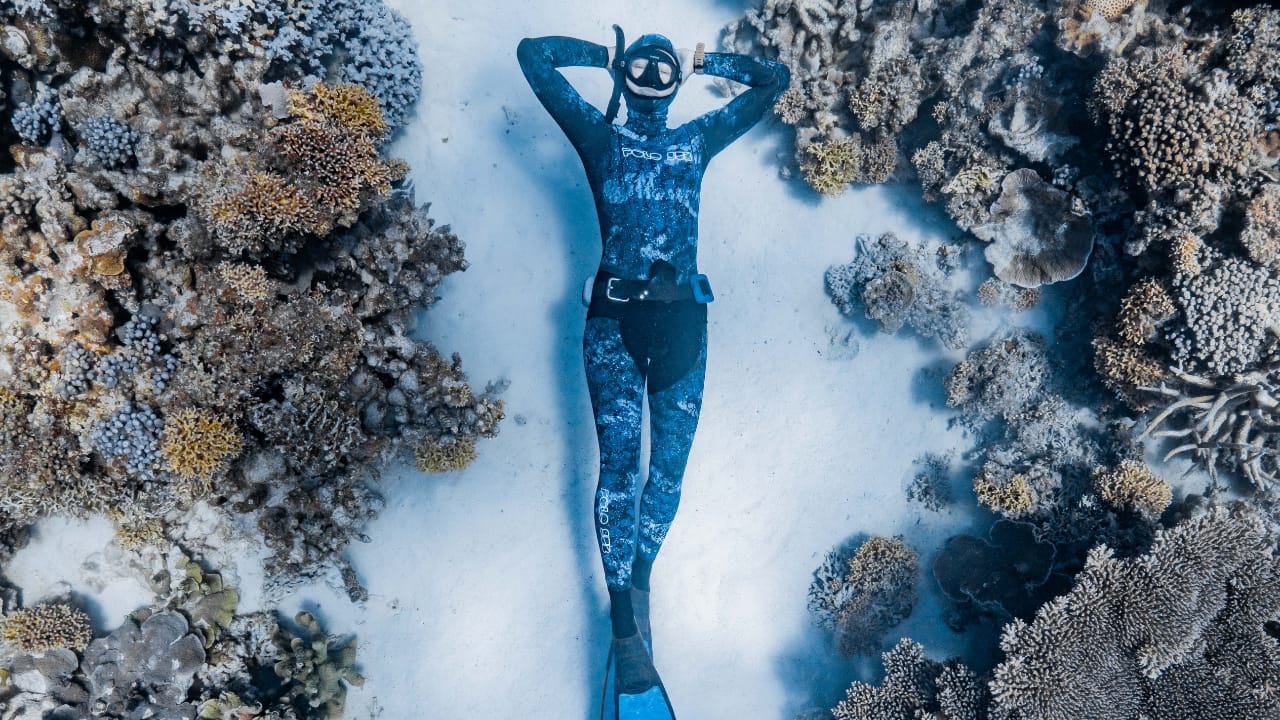
This Freediver Exchange is divided into two parts to help you get to know both freedivers better.
Read more about self-taught vs. coached approach, key lessons learned, advice for beginners, and role models in freediving.
Featured posts:
